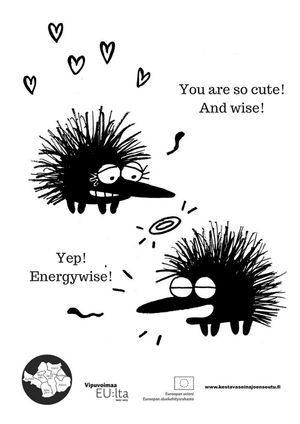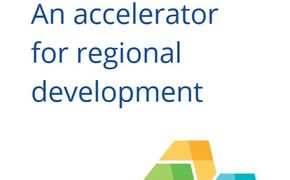Though climate change is a global problem, as individuals we must do our own bit to reduce our carbon footprint. Often the biggest challenge though is knowing what we should do. Municipalities face the same problems: despite a desire to improve their climate and energy policies a lack of knowledge or experience may hold them back. This is especially true of smaller authorities with fewer staff and resources.
In South Ostrobothnia, Finland, a group of eight municipalities decided to share their problem, joining forces to work together on climate and energy issues. Their collaboration began in 2011, under the guidance of Lapua municipality and Thermopolis, the region’s Energy Agency. Within two years the group had written and agreed on a common Climate Strategy document, which was adopted by each of the municipalities.
In 2010 the Finnish Government released a report on the future of climate and energy policies, which required all municipalities to have climate strategies, which can be challenging for smaller authorities. “Under Finnish law, every municipality must have an environmental and climate strategy. We acted as co-ordinators so that eight regions could co-operate to improve their approach”, explained Mervi Pienimäki, from Thermopolis.

Having a strategy is one thing, but implementing it is where the hard work really begins.
To ensure that everyone was pulling in the same direction, each municipality set up energy efficiency teams, bringing together staff from different departments. These teams meet regularly to plan and implement energy efficiency actions, including trainings for their co-workers.
By making energy efficiency a priority for all staff, the municipalities were able to increase the impact of their Climate Strategies. “The municipalities have invested in many things under their plans, including heat recovery and ventilation systems, and replacing oil heating systems, which have been a large energy consumer in the region’s public buildings,” says Pienimäki. “Municipalities have then shared their experiences of what has and has not worked so that they can learn from each other.”
As well as sharing their experiences, the municipalities have also co-operated to share training materials, run joint campaigns in schools, and arrange visits to inspiring regions and companies in Finland.
Seven years on, the Municipalities are still collaborating and have saved over EUR 400,000 in energy consumption in a joint population of under 50,000 people.
Their experiences are now being shared with international partners in the Interreg Europe project ZEROCO2, where the South Ostrobothnia Energy Agency is a partner.
The aim of the project is to improve regional energy policies with regard to environmental sustainability and mitigation of climate change risk, with a special focus on greening the building sector.
ZEROC02 is currently at the half-way stage, with partners having recently completed a comparative study of regional policies and best practices in the building sector from the seven Member States involved in the project: Slovenia, Greece, Italy, Lithuania, Malta, Finland and France. The Common Study is available in the library section of the project website.

Contact:
Mervi Pienimäki
Thermopolis Ltd
+358 44 738 0022









